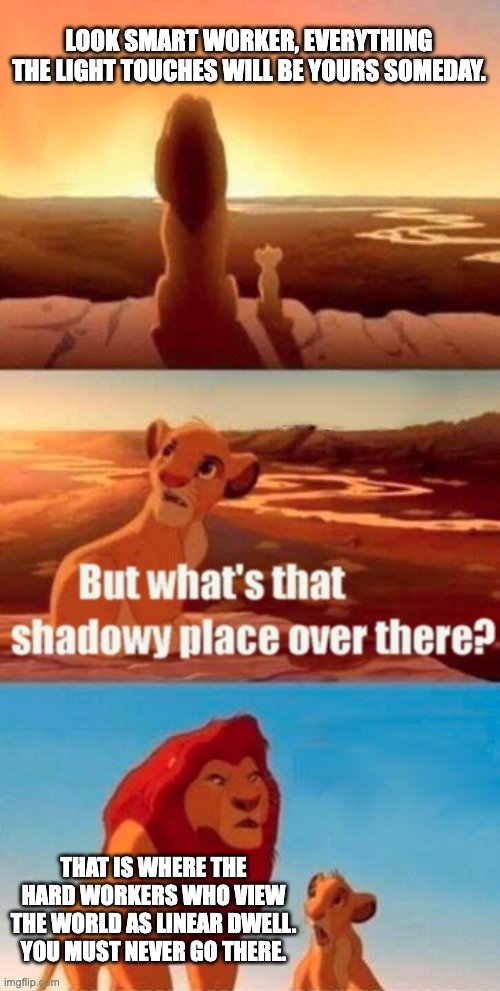What the Olympic Pommel Horse Guy Can Teach us about the Future of Work
In a society that glorifies grinding, short-term gains and pushing to extremes, it takes guts to rest. —Brad Stulberg
This is an obsession. Talent does not exist, we are all equals as human beings. You could be anyone if you put in the time. You will reach the top, and that's that. I am not talented. I am obsessed. —Conor McGregor
Above: Not bad for a thirty-seven second routine.
The 2024 Summer Olympic Games have now come and gone. All that now remains are the memories and the memes. And boy did it deliver on both fronts.
There were many golden moments, however, my personal favorite was US gymnast Stephen Nedoroscik horsing around during the mane event (I’ll see myself out).
He made Team USA as a pommel horse specialist—his only event—and went viral waiting all day for his turn. In one fell swoop, his near-flawless routine clinched the USA men's team its first medal in sixteen years. Giddyup USA!
His incredible achievement and immense skill notwithstanding, the way Nedoroscik did his job provides a beautiful metaphor about the fast-changing nature of work.
Superficially, Nedoroscik shows the importance of specialization in an increasingly complex, convoluted world.
Adam Smith is beaming from on high; as he wrote in The Wealth Of Nations:
It is the great multiplication of the productions of all the different arts, in consequence of the division of labour, which occasions, in a well-governed society, that universal opulence which extends itself to the lowest ranks of the people.
Doing one thing exceptionally well is a surefire way to stand out and thrive amongst the automatons that do performative white-collar work.
However, much more interesting than his specialty is his modus operandi. Herein lies the real insight.
The men's gymnastics team final lasted three hours.
Nedoroscik sat still and rested for two hours and fifty-five minutes before riding the pommel horse to Olympic glory.
He worked smarter, not harder and avoided conflating motion with progress.
As Naval Ravikant put it, he worked like a lion:
Naval’s words bear repeating:
We like to view the world as linear.
I put in 8 hours of work, I get back 8 hours of output. It doesn't work that way.
The guy running the corner grocery store is working just as hard, if not harder, than you and me, how much output is he getting?
What you do, who you do it with, and how you do it are way more important than how hard you work. Outputs are non-linear based on the quality of the work that you put in. The right way to work is like a lion. You don't you and I are not like cows. We're not meant to graze all day, right? We're meant to hunt like lions. We're closer to carnivores and omnivorous in development than we are to herbivores…
The right way to work is like a lion. As an intellectual athlete, you want to function like an athlete. You train hard, then you sprint, then you rest, then you reassess.
This idea that you're gonna have linear output just by cranking every day at the same amount of time is too machine-like.
Machines should be working 9-5. Humans aren't meant to.
This makes complete sense. For nearly all of human life, we have existed either as hunter-gatherers or farmers. We have only spent an infinitesimal shred of time with the modern technology we have today. We are no more than apes in suits pecking away in cubicles.
With the advent of AI, the six inches between our ears risk becoming even more obsolete. This sea change will only further decrease the correlation between quantity and quality.
We must adapt, as our ancestors did before.
Many thinkers and commentators—from John Maynard Keynes to Marc Andreessen—have predicted the death of the 9-5. However, I think the more important focus is about what we do in this window, how we use these hours more expeditiously.
Technological change creates more of a shift in how humans work than in the overall amount of time worked. This is because work is less a rational, economic trend and more a cultural one.
We now live in the age of The 4-Hour Workweek. All you need to enjoy a successful career or build a profitable business is two to four hours of deep, uninterrupted work per day. The quantity of hours worked matters much less than the quality of work done. AI will only amplify this phenomenon.
As I wrote in Remembrance of Tasks Past:
First, software ate the world.
To paraphrase Marc Andreessen, “[M]any of the prominent new Internet companies [have] real, high-growth, high-margin, highly defensible businesses.” This handful of bi and tri-syllabic companies came onto the scene with a bang.
Now, artificial intelligence is devouring everything with nary a whimper. It is death by a thousand LLMs.
The space between idea and reality is as frictionless as it’s ever been thanks to the lubricant of AI.
With tools like Dall-E, ChatGPT and Claude, barriers to creating anything collapse. A few keystrokes can prompt and generate entire articles, paintings, websites, and products.
As the friction coefficient approaches zero, the onus shifts to the idea rather than execution.
Wealth, power, and influence will accrue to those with the best ideas, not those who work the hardest. Caveat emptor operarius.
The future belongs to the lions, not the cattle. Equipped with AI, the carnivores will devour the cud-chewers.
The hunt is on and you only eat what you kill. Are you predator or prey?









